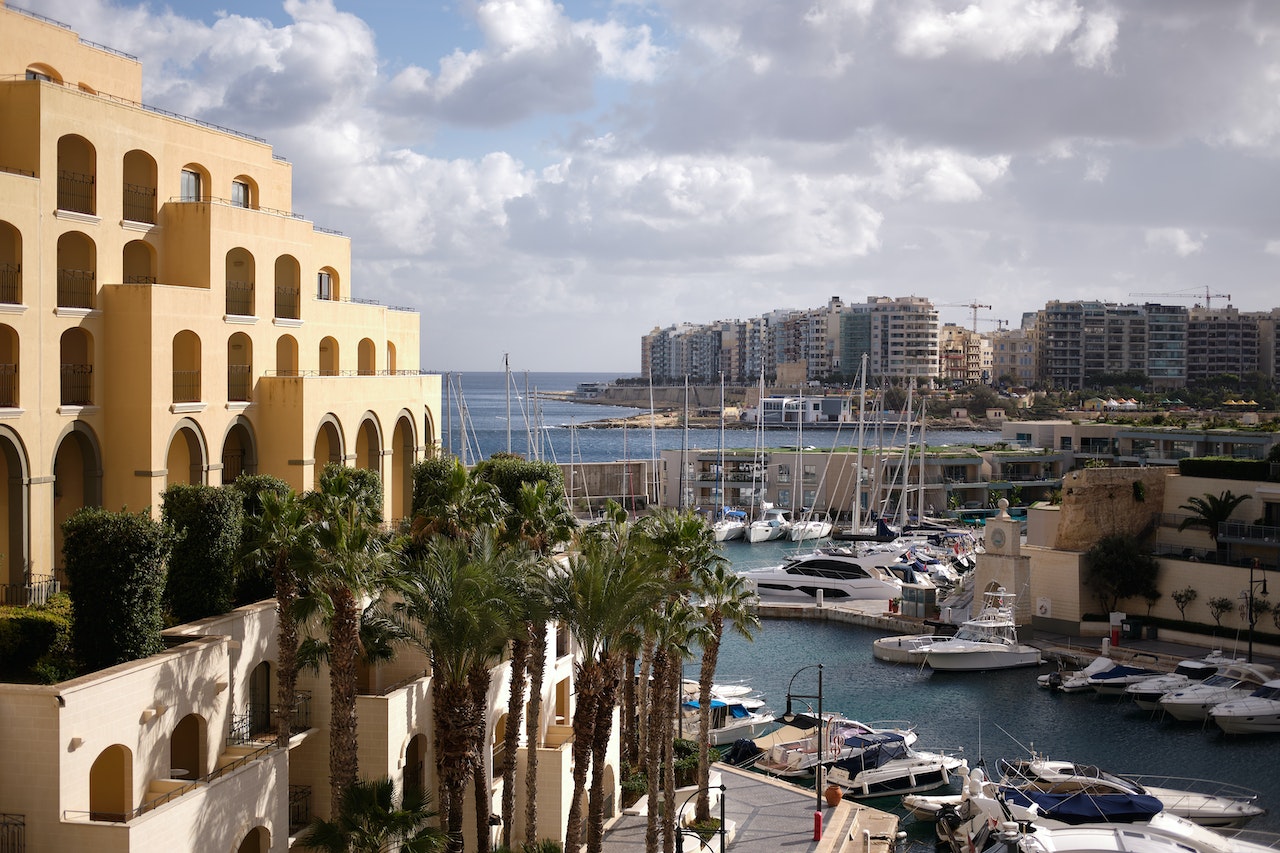Malta offers several residency schemes to those wishing to take up legal residence in Malta, all of which grant holders full flexibility in their travel to and from the islands, and confer the right to move freely in the 26 countries of the Schengen Area without any visa requirements for up to 90 days in each 180-day period.
Permanent residents can also freely repatriate any capital or income from sale of property or encashment of investment.
Beyond that, however, there are important differences related to the eligibility, application requirements, and tax implications (bearing in mind that Malta does not impose any wealth, inheritance, estate, or gift taxes).
Maltese Exceptional Investor Naturalisation
Foreign individuals and their families who contribute to the country’s economic development are eligible for Malta’s highly-esteemed citizenship-by-residence-and-investment programme. Granting visafree or visa-on-arrival access to 185 countries, the Maltese passport offers unparalleled flexibility, ranking among the top 10 passports globally.
As EU citizens, holders also have full access to the rights and protections afforded by Malta’s membership, including the freedom to settle anywhere in the bloc.
After undergoing a revamp in 2020, the Maltese Exceptional Investor Naturalisation (MEIN) programme today boasts the world’s strictest due diligence and vetting criteria, attracting only the most respectable of candidates.
If you are attracted by the many benefits Maltese citizenship offers, you are advised to hurry – approvals are capped at 400 a year, and the total maximum number of accepted applicants is set at 1,500 for the entire scheme. It is also important to note that the European Commission initiated an infringement procedure in relation to this scheme in April 2022, to which the Maltese Government has responded by pointing out that citizenship is a wholly national competence and not subject to EU supervision. As of publication, the proceedings are ongoing.
MEIN tax implications
Beneficiaries of the MEIN programme are subject to the regular Maltese personal tax rates on income arising in Malta. Income arising abroad which is not remitted to Malta falls beyond the purview of the local tax authorities, while capital and capital gains remittances are untaxed.
MEIN eligibility criteria
Nationality: Applicants can be citizens of any country except those currently subject to international sanctions. It is recommended to refer to the MEIN FAQ on the Community Malta Agency website (See below) for an up-to-date list of such countries.
Capital: No particular capital requirements.
Background check: The due diligence process conducted by the Maltese authorities is considered the most stringent in the industry. It involves obtaining police clearance after thorough checks through Interpol, Europol, and other agencies’ databases, followed by an assessment of the documentation provided as evidence for the sources of funds and wealth by anti-money laundering and terrorism financing professionals.
Finally, assessors compile all the information collected and draw up a risk matrix developed over years of experience to ensure decisions are taken systematically and transparently. Applicants must also be ready to provide extremely detailed documentation. Passport copies and birth certificates must be apostilled and copies of contracts must be certified, while bank statements and transactions will be requested.
Malta touts the scheme as a way to attract talent that can add value to the country, and the due diligence applied ensures the focus is on quality, not quantity.
MEIN application
Application and duration: An application must be submitted through a Licensed Agent. Citizenship is granted for life and is hereditary.
Property: Upon approval, applicants are obliged to either rent or purchase property in Malta. Rent must be a minimum of €16,000 yearly, while a purchased property must have a minimum value of €700,000. Applicants must retain the property for at least five years from the date of issue of the certificate of Maltese citizenship.
Residence card fee: The main applicant must pay a non-refundable application fee of €10,000 to obtain initial residence. The fee for each dependent is €1,000.
Due diligence fee: The main applicant must pay a non-refundable fee of €15,000 to allow the Maltese regulator to undertake its strict four-tier due diligence process, with each dependent over the age of 18 subject to an additional €10,000 fee. Third parties sponsoring an application must also pay a due diligence fee of €15,000.
Application fee: All applicants must pay a non-refundable €1,000 fee on submission of their application.
Upon passing an initial background check, applicants are granted a residence permit (against proof of property lease or purchase). Citizenship is only considered after applicants have resided in the country for a minimum of 12 months.
This does not mean that Malta must be an applicant’s primary abode during this period. Instead, a genuine link to the country must be established.
To ensure a smooth process, applicants are typically urged to spend an amount of time in Malta, whether on one long trip or multiple shorter ones, and to enrol in social or professional bodies. Once deemed eligible to apply for citizenship, applicants have four months to do the following:
Citizenship fee: All applicants must pay a €500 fee as part of their application for naturalisation.
Exceptional investment: Applicants who have been resident in Malta for three years are required to make a contribution of €600,000 to the National Development and Social Fund (NDSF), or €750,000 for those applying after one year of residency. An additional €50,000 contribution is required for each dependent.
Donation: Applicants must make a donation of at least €10,000 to a local philanthropic, cultural, scientific, artistic, sport, or animal welfare association registered with the Commissioner of Voluntary Organisations.
Once these criteria are met, applicants are invited to take an Oath of Allegiance to the Republic of Malta and its fundamental democratic values, followed by the issuing of Maltese passports.
More information about the Malta Exceptional Investor Naturalisation programme can be found on the website of its operator, Community Malta Agency, a dedicated government-run agency.
This feature was first carried in the Malta Invest 2023 edition. Malta Invest is the first-ever comprehensive international investment guide focusing on Malta as a destination. It is produced by Content House Group.
Employers take umbrage at video promoting public sector’s flexible work arrangements
The video outlines a range of flexibility options available to public sector employees
Malta’s inflation eases to 2.5% in January as food prices remain main driver
While overall inflation continued to moderate at the start of the year, price pressures remain uneven across categories
Final call for food and beverage manufacturers to exhibit at SIAL Paris
SIAL Paris is one of the world’s leading international food and beverage exhibitions






